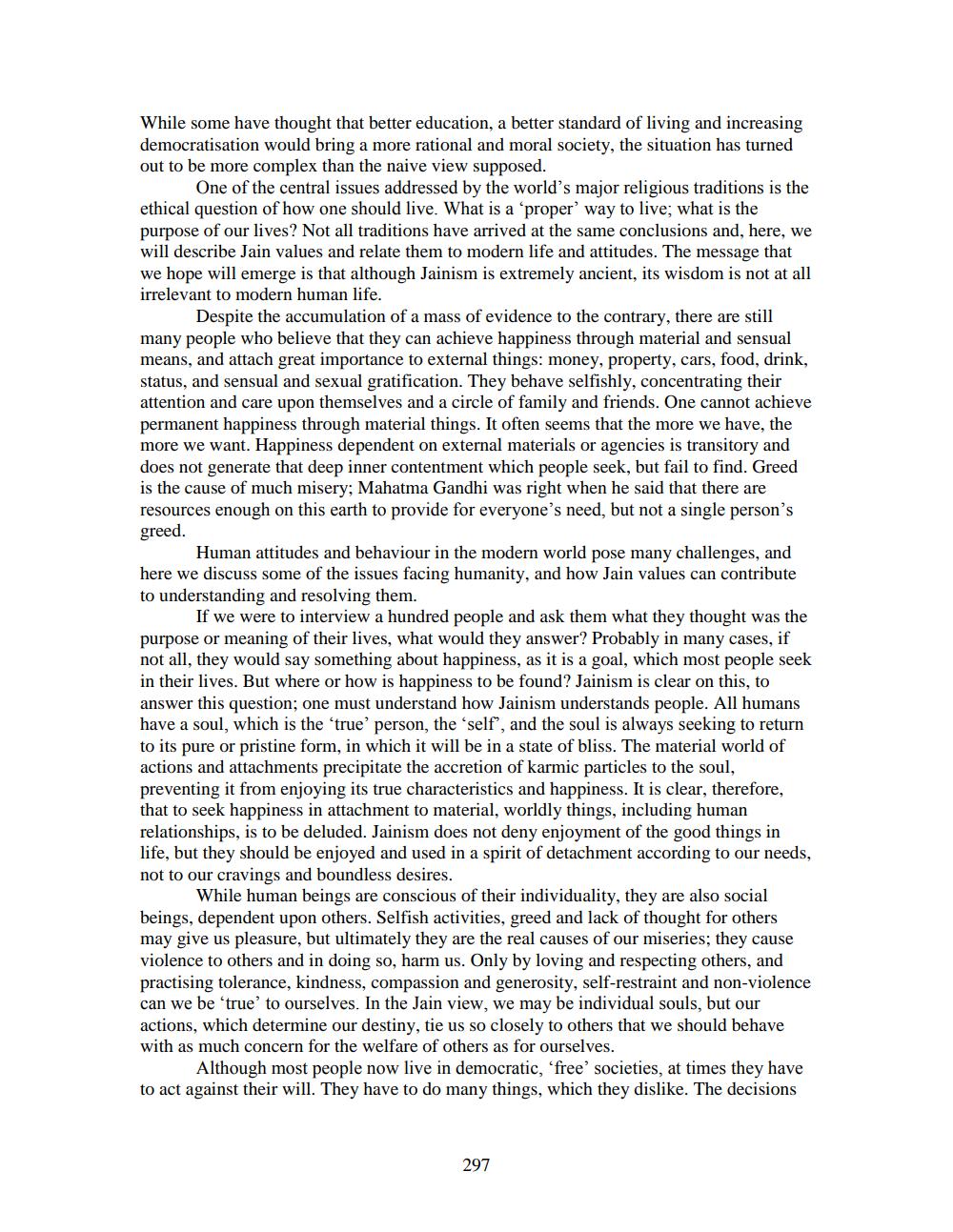________________
While some have thought that better education, a better standard of living and increasing democratisation would bring a more rational and moral society, the situation has turned out to be more complex than the naive view supposed.
One of the central issues addressed by the world's major religious traditions is the ethical question of how one should live. What is a 'proper way to live, what is the purpose of our lives? Not all traditions have arrived at the same conclusions and, here, we will describe Jain values and relate them to modern life and attitudes. The message that we hope will emerge is that although Jainism is extremely ancient, its wisdom is not at all irrelevant to modern human life.
Despite the accumulation of a mass of evidence to the contrary, there are still many people who believe that they can achieve happiness through material and sensual means, and attach great importance to external things: money, property, cars, food, drink, status, and sensual and sexual gratification. They behave selfishly, concentrating their attention and care upon themselves and a circle of family and friends. One cannot achieve permanent happiness through material things. It often seems that the more we have, the more we want. Happiness dependent on external materials or agencies is transitory and does not generate that deep inner contentment which people seek, but fail to find. Greed is the cause of much misery; Mahatma Gandhi was right when he said that there are resources enough on this earth to provide for everyone's need, but not a single person's greed.
Human attitudes and behaviour in the modern world pose many challenges, and here we discuss some of the issues facing humanity, and how Jain values can contribute to understanding and resolving them.
If we were to interview a hundred people and ask them what they thought was the purpose or meaning of their lives, what would they answer? Probably in many cases, if not all, they would say something about happiness, as it is a goal, which most people seek in their lives. But where or how is happiness to be found? Jainism is clear on this, to answer this question; one must understand how Jainism understands people. All humans have a soul, which is the 'true' person, the 'self, and the soul is always seeking to return to its pure or pristine form, in which it will be in a state of bliss. The material world of actions and attachments precipitate the accretion of karmic particles to the soul, preventing it from enjoying its true characteristics and happiness. It is clear, therefore, that to seek happiness in attachment to material, worldly things, including human relationships, is to be deluded. Jainism does not deny enjoyment of the good things in life, but they should be enjoyed and used in a spirit of detachment according to our needs, not to our cravings and boundless desires.
While human beings are conscious of their individuality, they are also social beings, dependent upon others. Selfish activities, greed and lack of thought for others may give us pleasure, but ultimately they are the real causes of our miseries; they cause violence to others and in doing so, harm us. Only by loving and respecting others, and practising tolerance, kindness, compassion and generosity, self-restraint and non-violence can we be 'true' to ourselves. In the Jain view, we may be individual souls, but our actions, which determine our destiny, tie us so closely to others that we should behave with as much concern for the welfare of others as for ourselves.
Although most people now live in democratic, 'free' societies, at times they have to act against their will. They have to do many things, which they dislike. The decisions
297




